AP Government Court Cases
1/48
There's no tags or description
Looks like no tags are added yet.
Name | Mastery | Learn | Test | Matching | Spaced | Call with Kai |
|---|
No analytics yet
Send a link to your students to track their progress
49 Terms
Engel v Vitale
First Amendment/Establishment Clause - Government-directed prayer in public schools violates the Establishment Clause of the First Amendment, even if the prayer is denominationally neutral and students may remain silent or be excused from the classroom during its recitation.
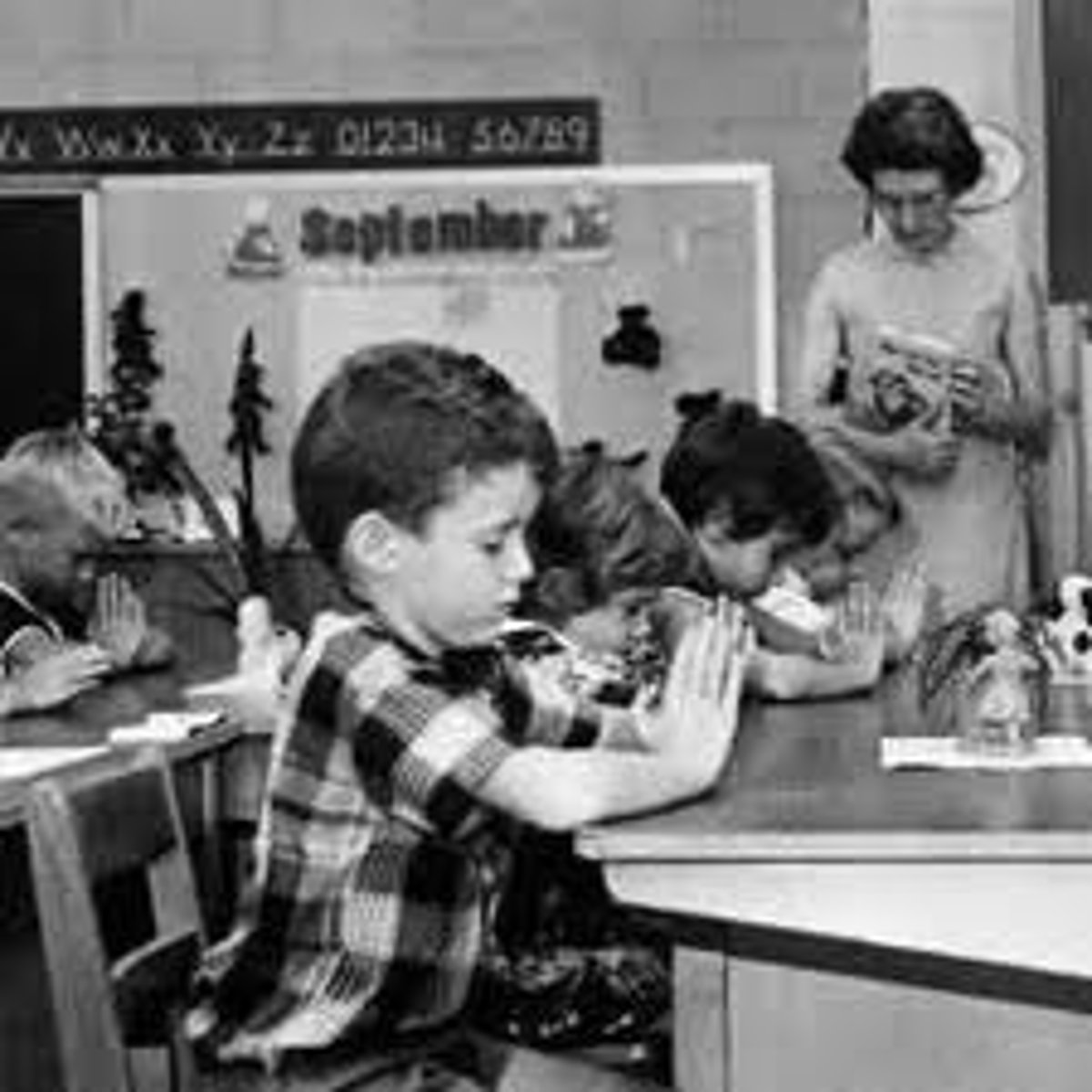
Lemon v Kurtzman
Parochial schools must be private schools. They cannot be publicly funded via state law.
Lemon Test:
1. The statute must have a secular legislative purpose. (Also known as the Purpose Prong)
2. The principal or primary effect of the statute must not advance nor inhibit religion. (Also known as the Effect Prong)
3. The statute must not result in an "excessive government entanglement" with religion. (Also known as the Entanglement Prong)
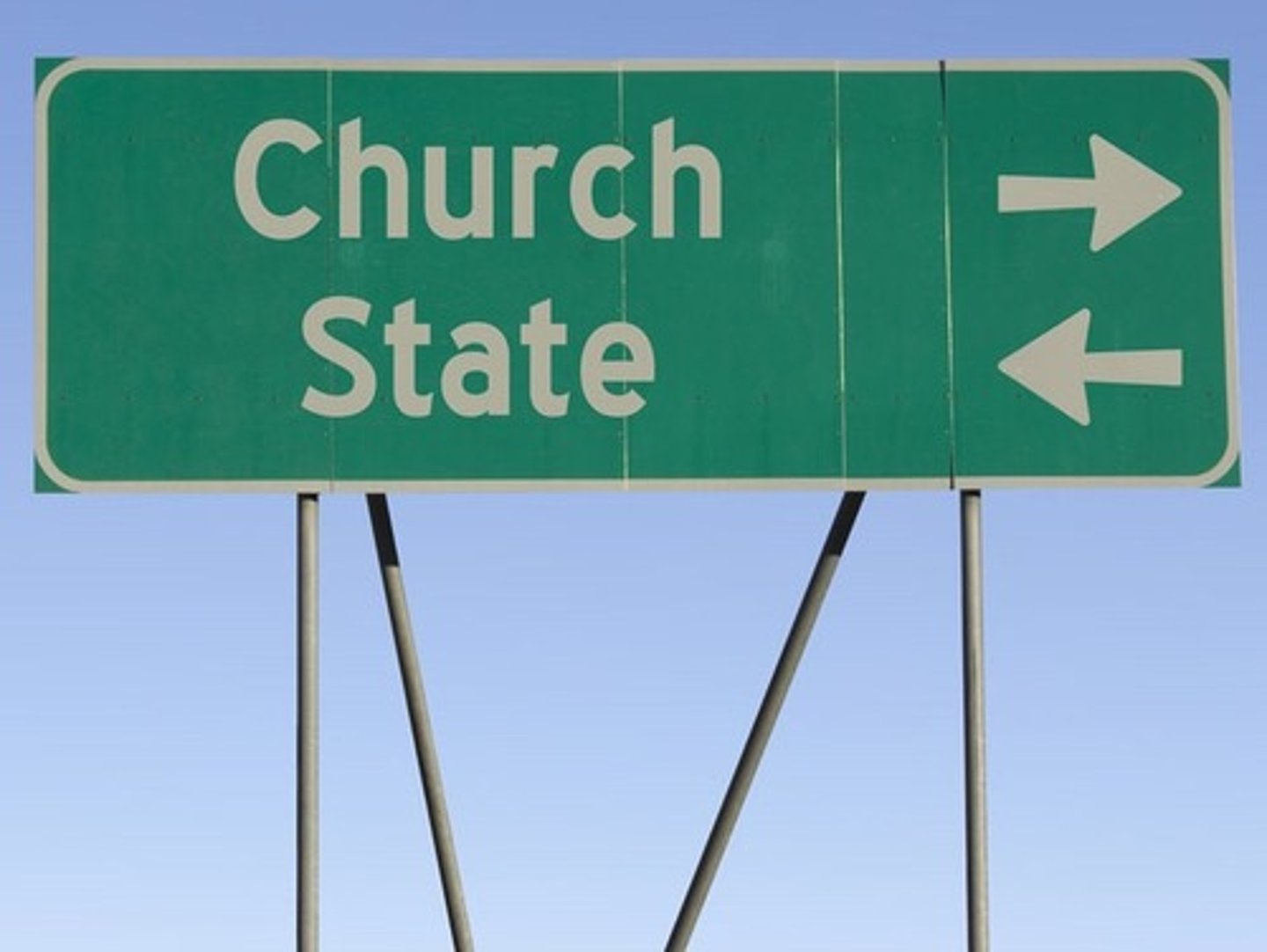
Reynolds v U.S.
First Amendment/Free Exercise Clause - the statute can punish criminal activity without regard to religious belief. The First Amendment protected religious belief, but it did not protect religious practices that were judged to be criminal such as bigamy. Those who practice polygamy could no more be exempt from the law than those who may wish to practice human sacrifice as part of their religious belief.
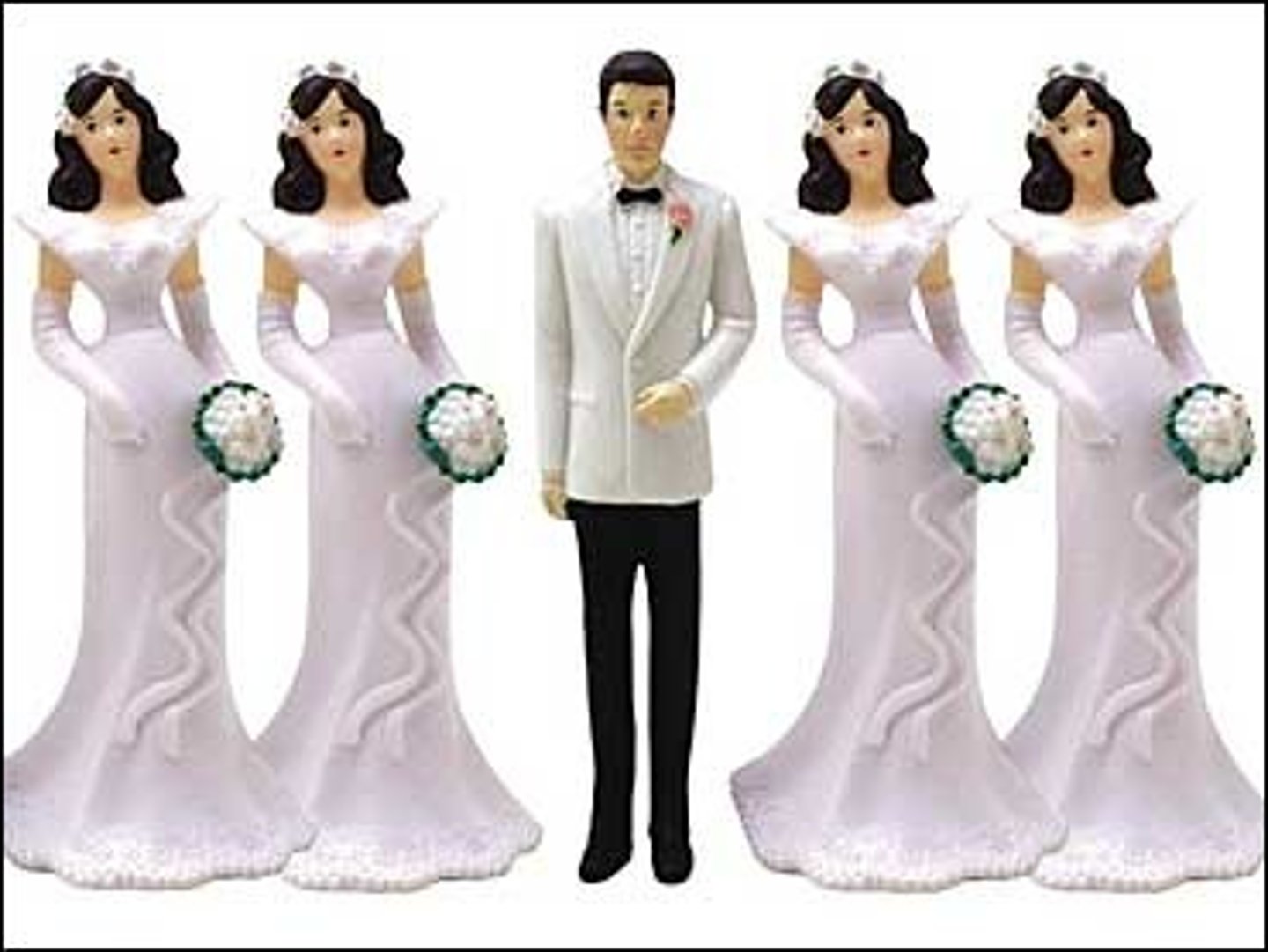
Baker v. Carr
1962 in Tennessee, federal government has the ability to intervene in a state's redistricting to ensure fairness because redistricting is not just a political question
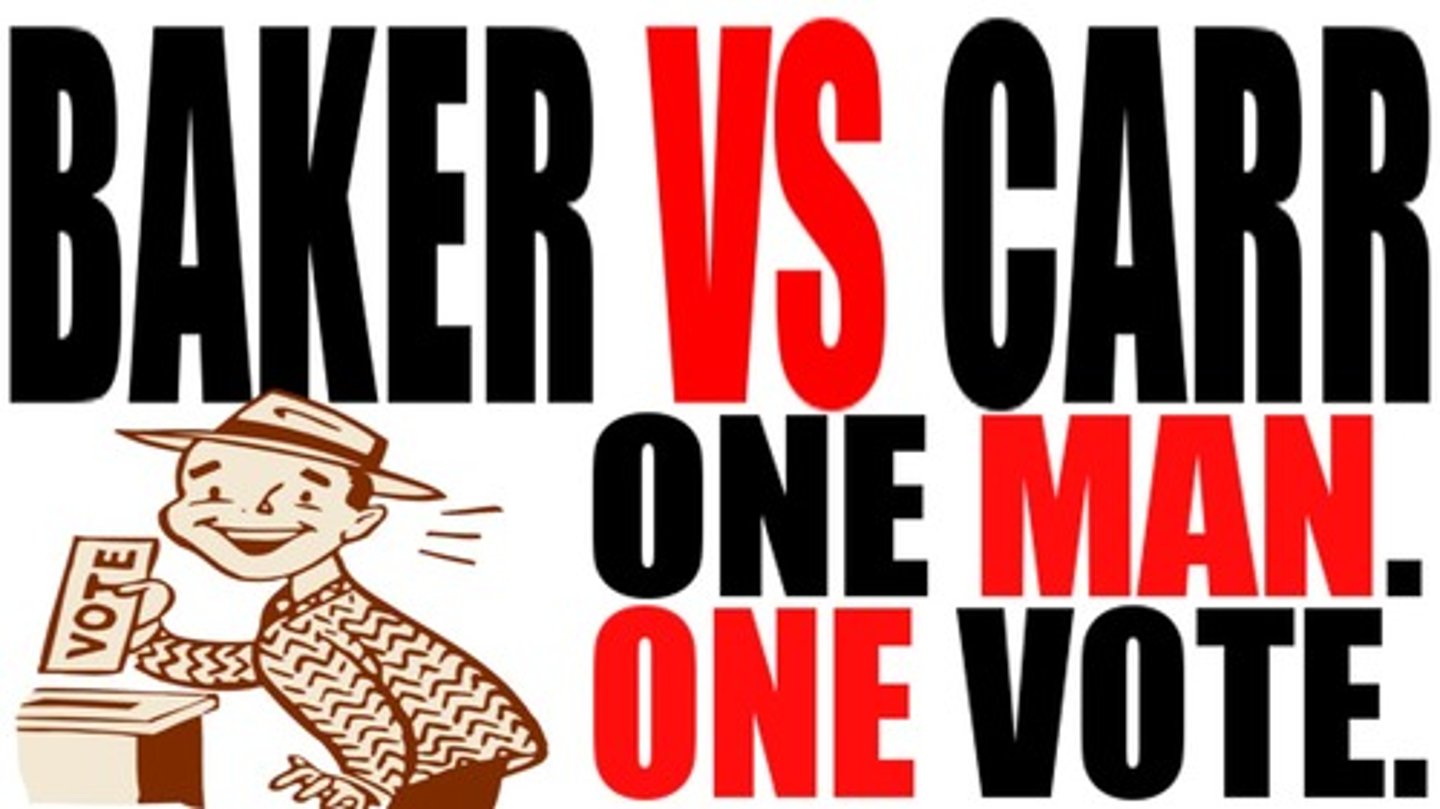
NY Times v. U.S.
First Amendment/Freedom of the Press - New York Times and Washington Post could print the Pentagon Papers without risk of government censorship or punishment
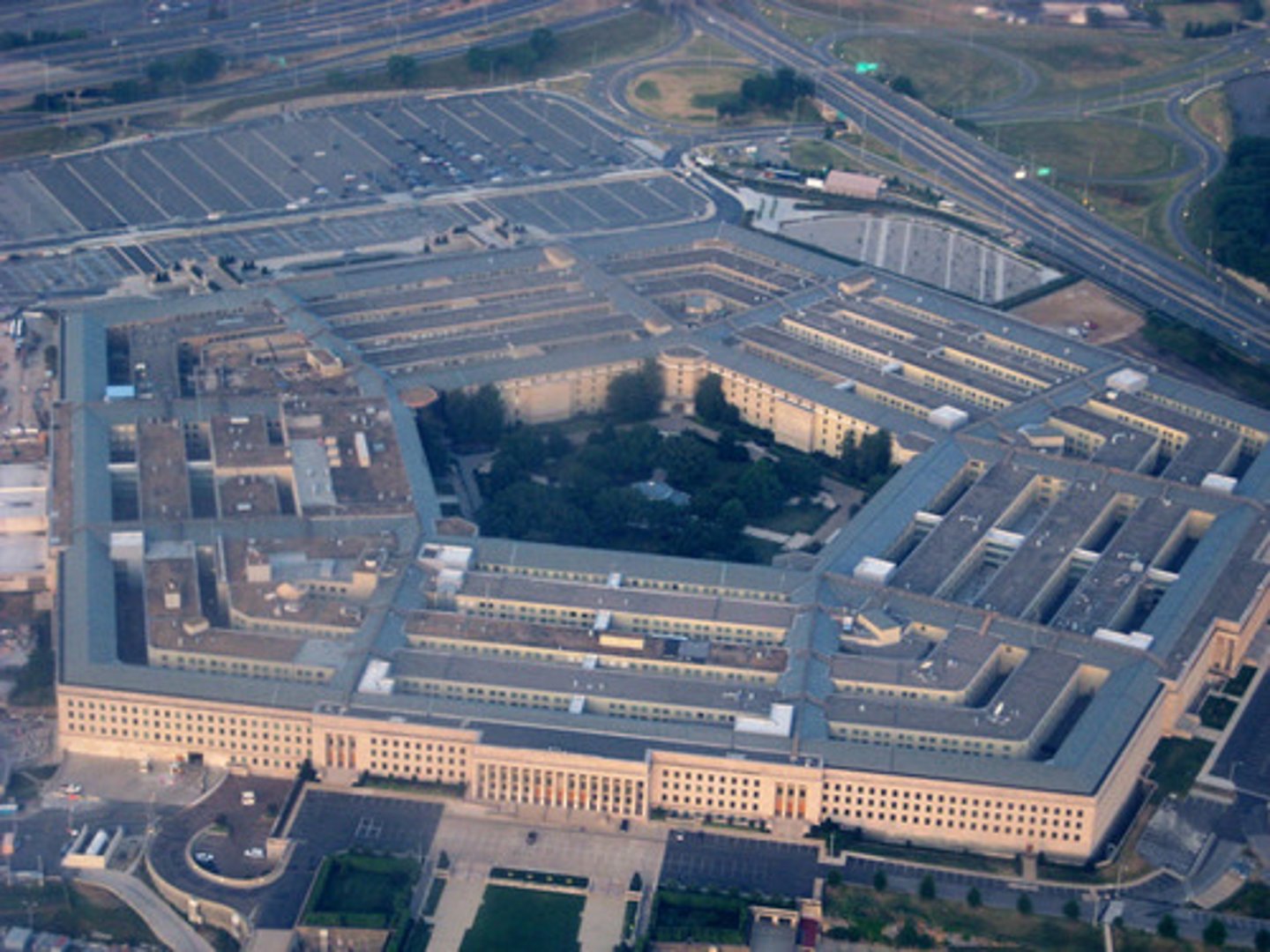
Schenck v. U.S.
First Amendment/Freedom of Speech/non-protected - The circulars urged "Do not submit to intimidation" but advised only peaceful action such as petitioning to repeal the Conscription Act. Schenck was charged with conspiracy to violate the Espionage Act by attempting to cause insubordination in the military and to obstruct recruitment. During wartime, utterances tolerable in peacetime can be punished. Clear and present danger test.
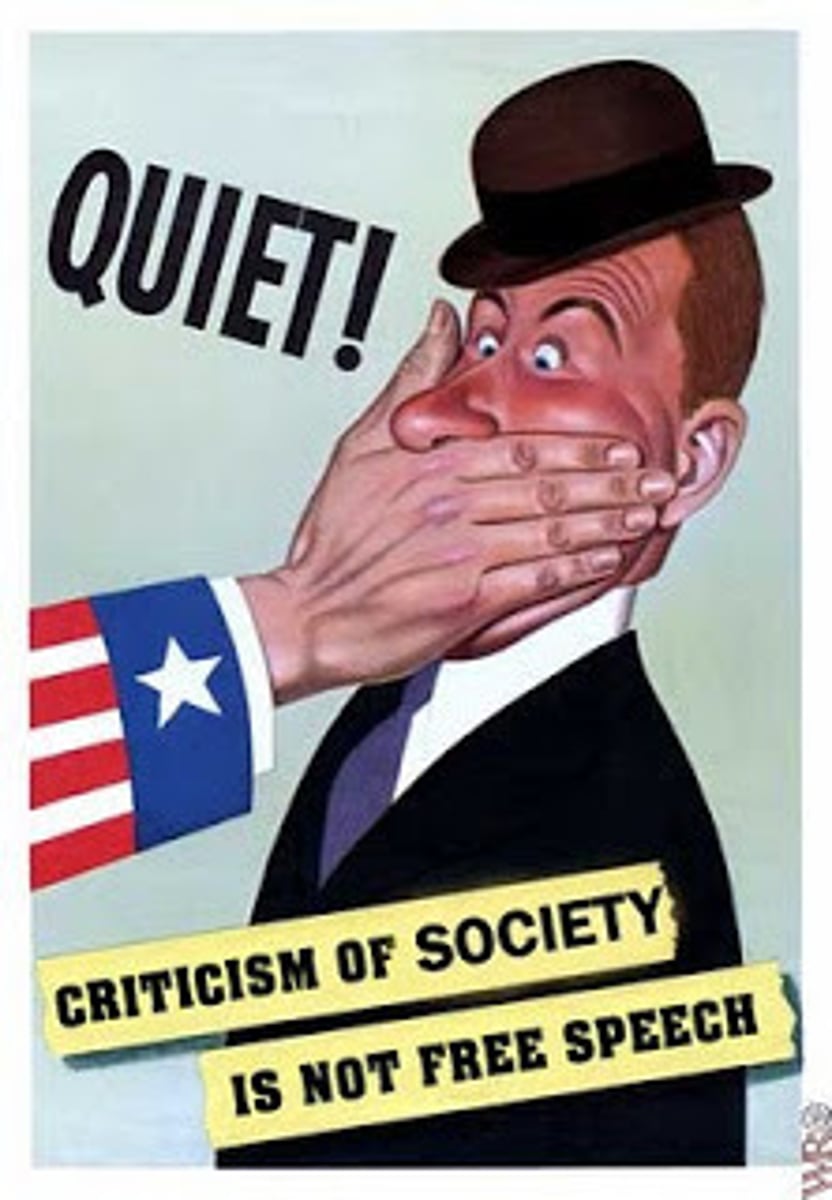
Gitlow v. New York
First Amendment/Freedom of Speech/non-protected - the government may suppress or punish speech that directly advocates the unlawful overthrow of the government and it upheld the constitutionality of the state statute at issue, which made it a crime to advocate the duty, need, or appropriateness of overthrowing government by force or violence, selective incorporation of 14th amendment.
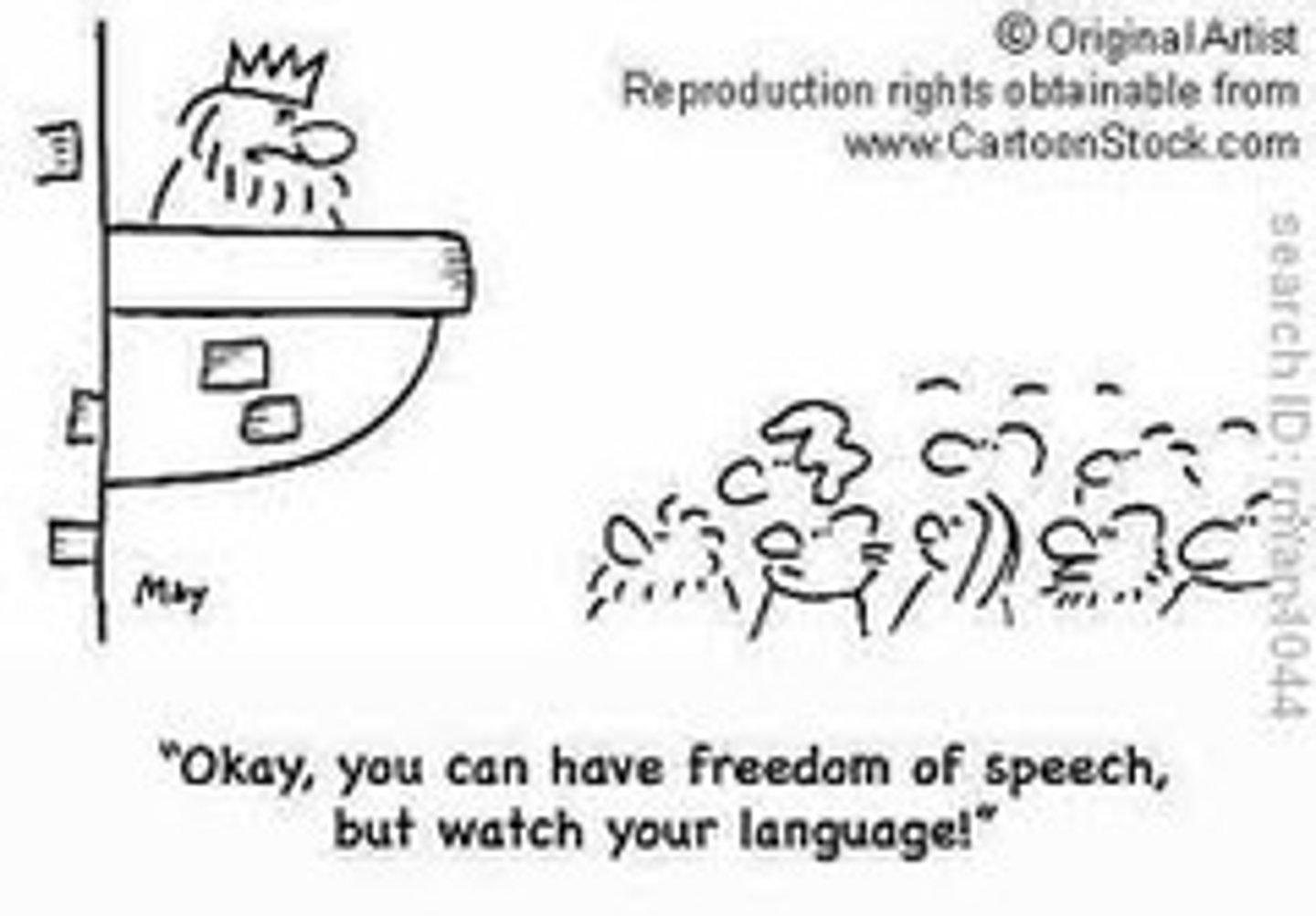
Buckley v. Valeo
First Amendment/Freedom of Speech/protected - campaign finance - upheld federal limits on campaign spending and identified spending money to influence elections is a form of free speech

Tinker v. Des Moines
First Amendment/Freedom of Speech/symbolic speech - students' wearing of armbands in support of Vietnam truce did not interrupt school activities, pure speech

U.S. v. Lopez
Second Amendment - gun laws about schools not related to interstate commerce and not under federal authority
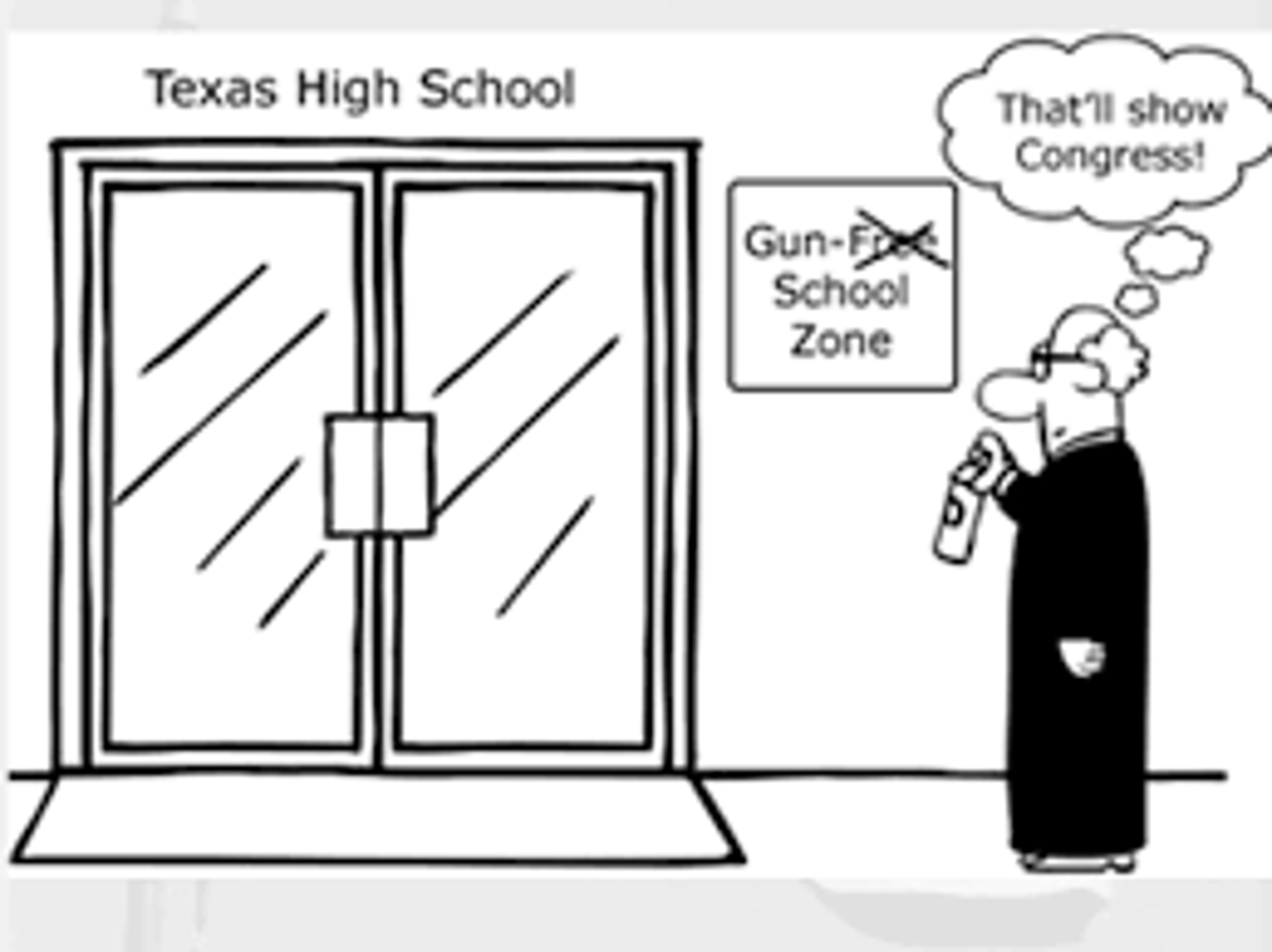
Mapp v. Ohio
Fourth Amendment/Exclusionary Rule - evidence taken in unreasonable searches and seizures may not be used in court.

Miranda v. Arizona
Fifth and Sixth Amendment - unless the accused is notified of the reason for their arrest, the ability to consult with an attorney, the ability to not self-incriminate their testimony is not permissible in court.
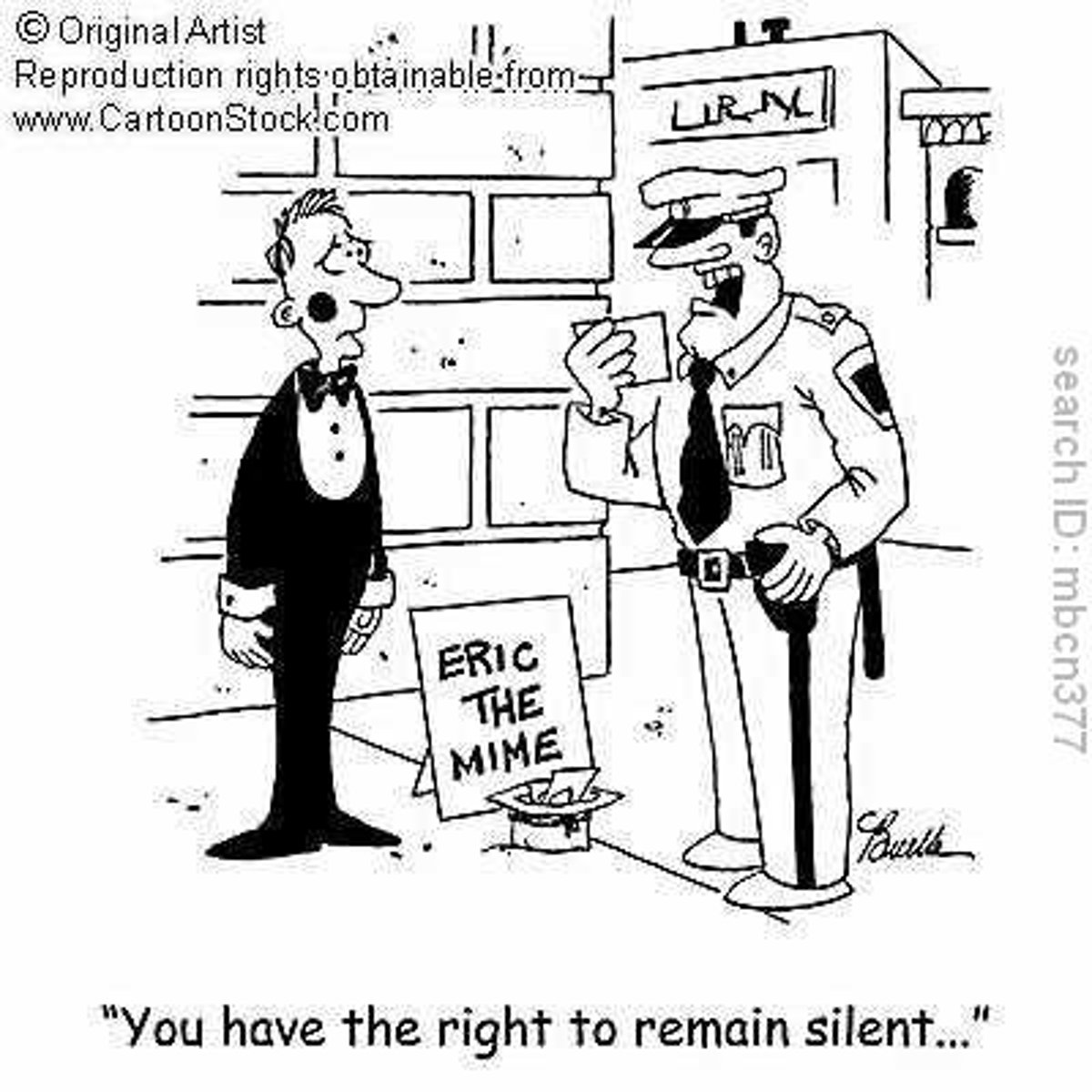
Korematsu v. U.S.
Fifth and Sixth Amendment - internment of Japanese-Americans during WWII was Constitutional, justified during times of emergency and peril
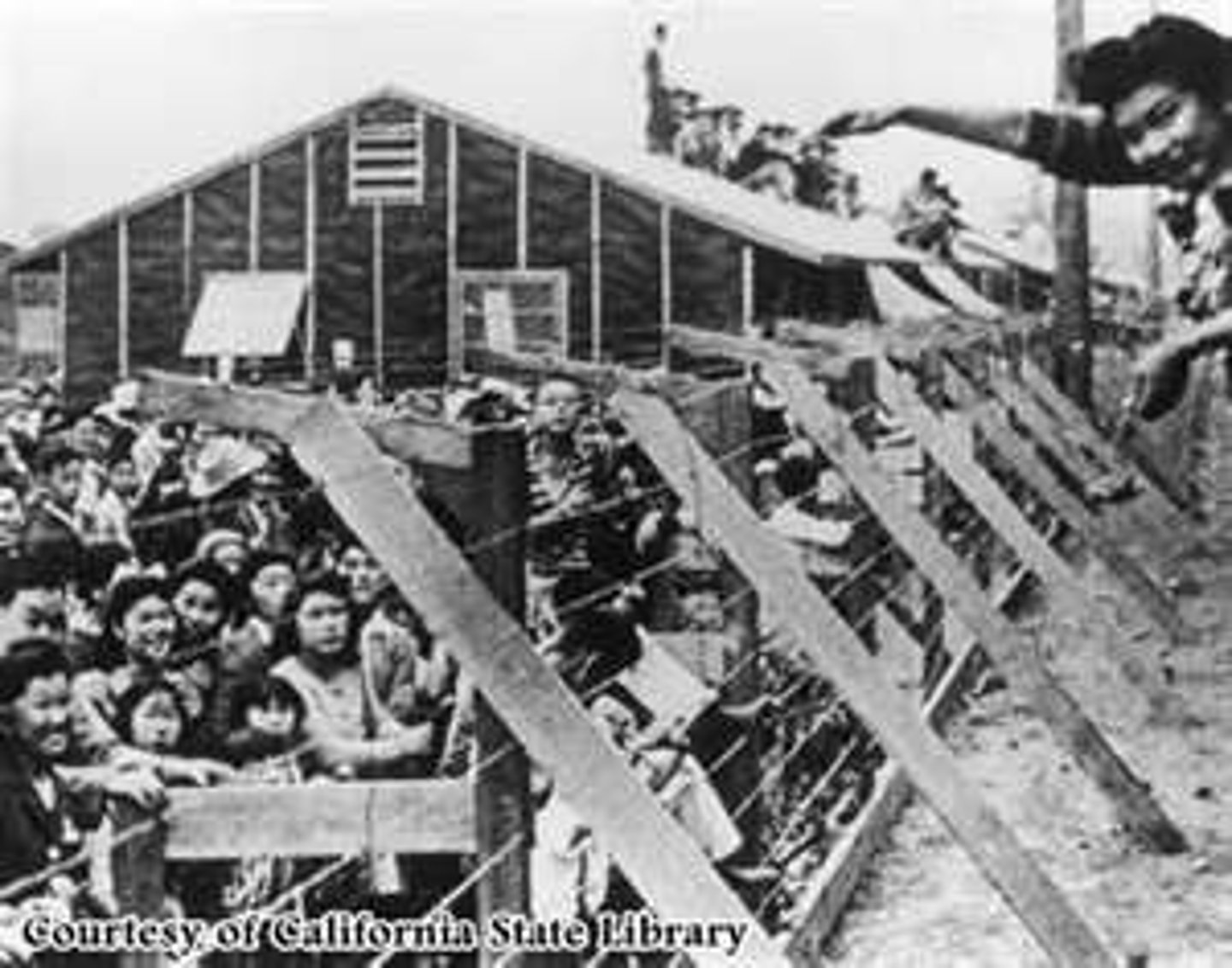
Griswold v. Connecticut
Ninth Amendment - state ban on use of contraceptives violates the right of marital privacy

Roe v. Wade
Ninth & Fourteenth Amendments/privacy
Abortion is a private matter
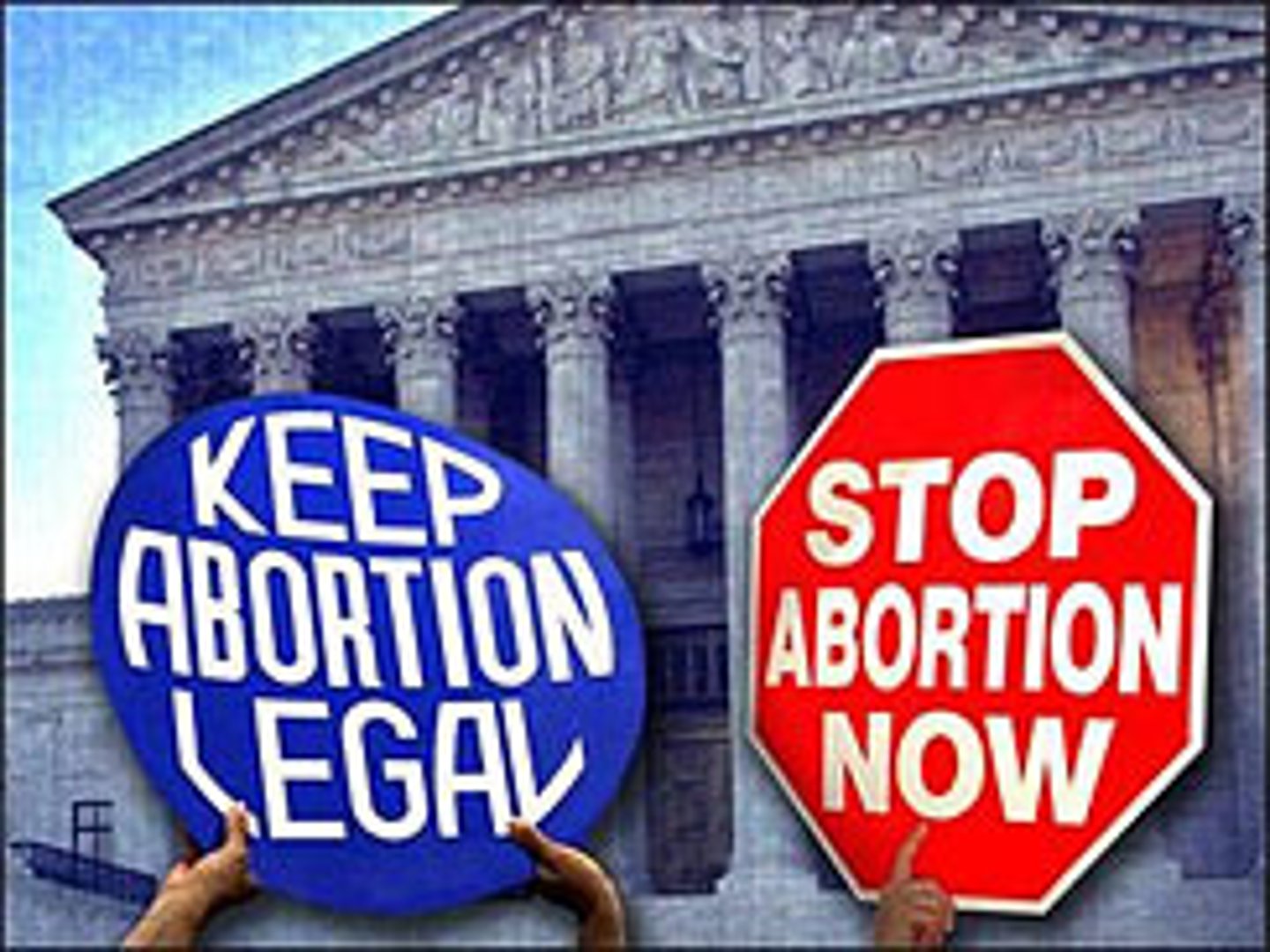
Plessy v. Ferguson
Fourteenth Amendment/Separate is Equal - ruled that railway cars provided were essentially equal so no violation of equal protection.
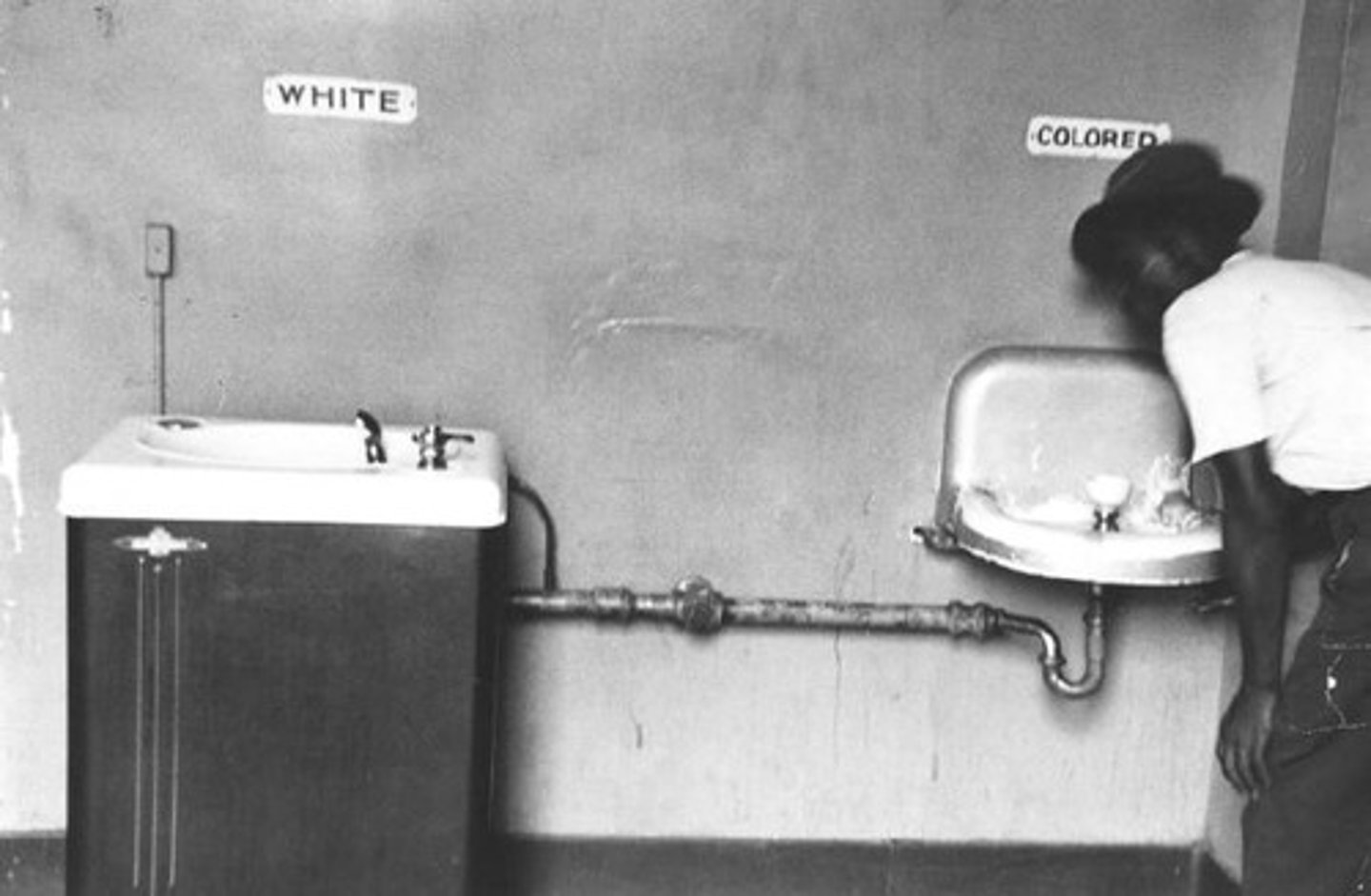
Brown v. Board of Education
Fourteenth Amendment/Separate not Equal - Integration of Schools - racial segregation violates the equal protection clause
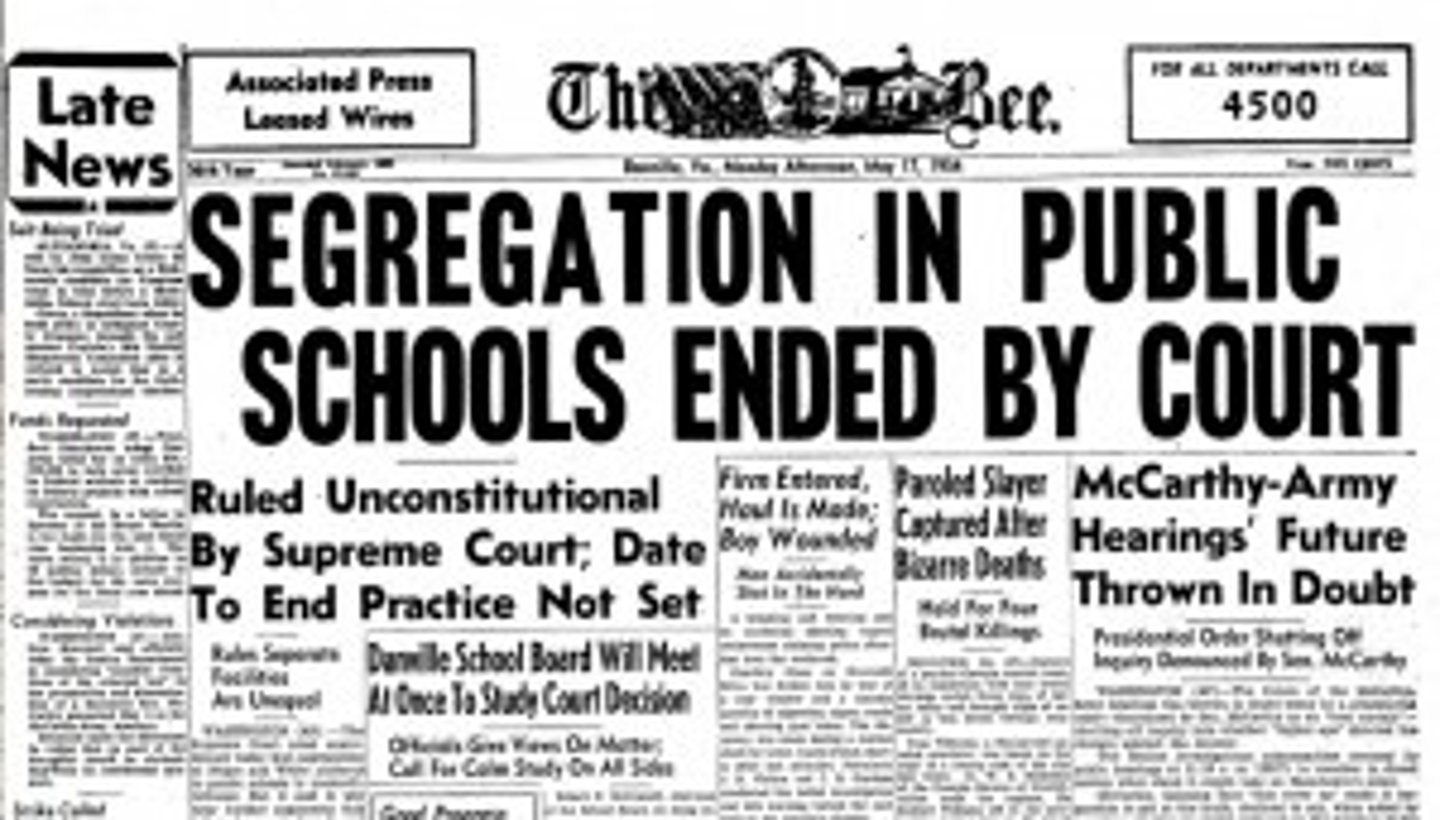
Regents of California v. Bakke
Fourteenth Amendment/Upheld Affirmative Action - race may be one of several factors in college admission policies.
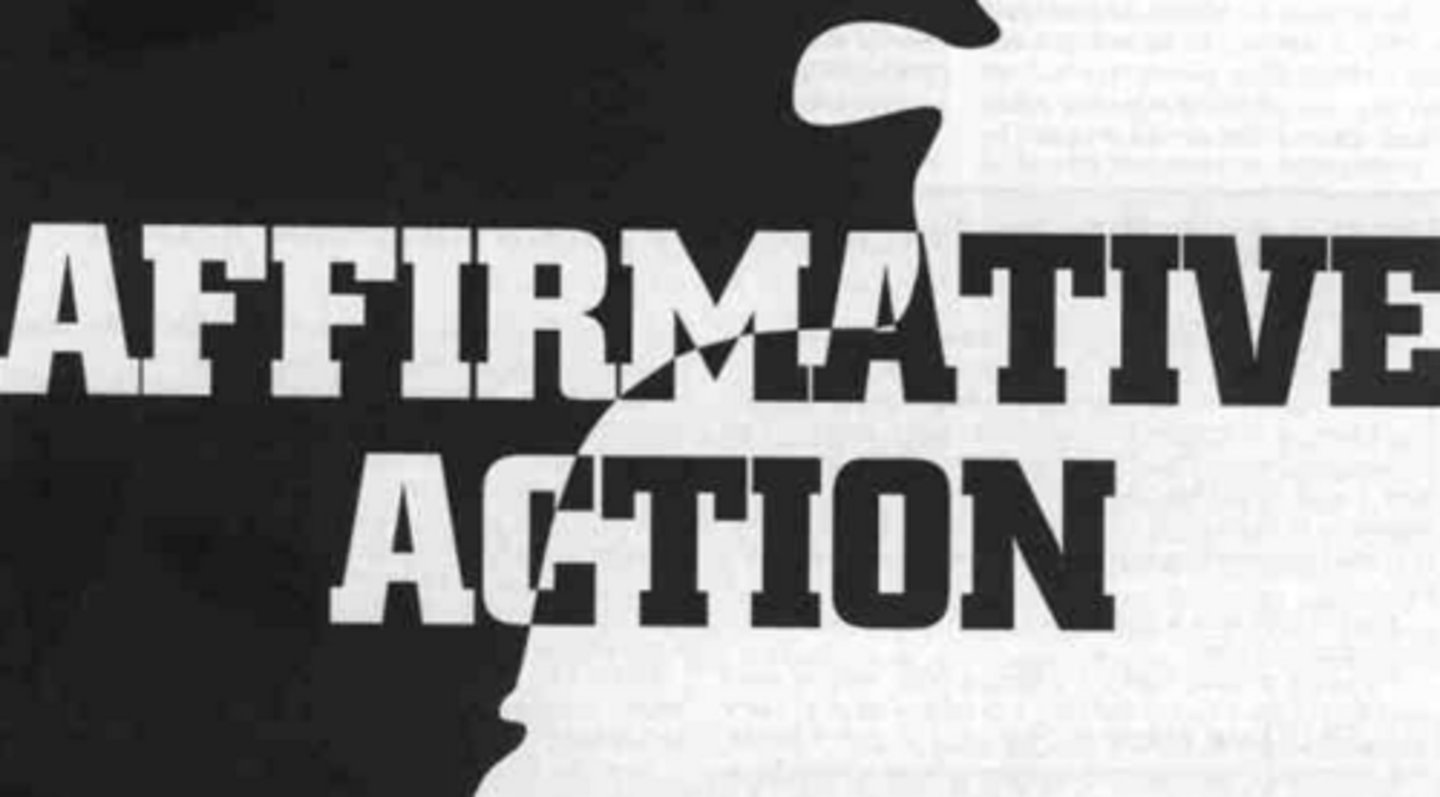
Marbury v. Madison
Establishes the Supreme Court as having the power of Judicial Review/interpret the Constitution
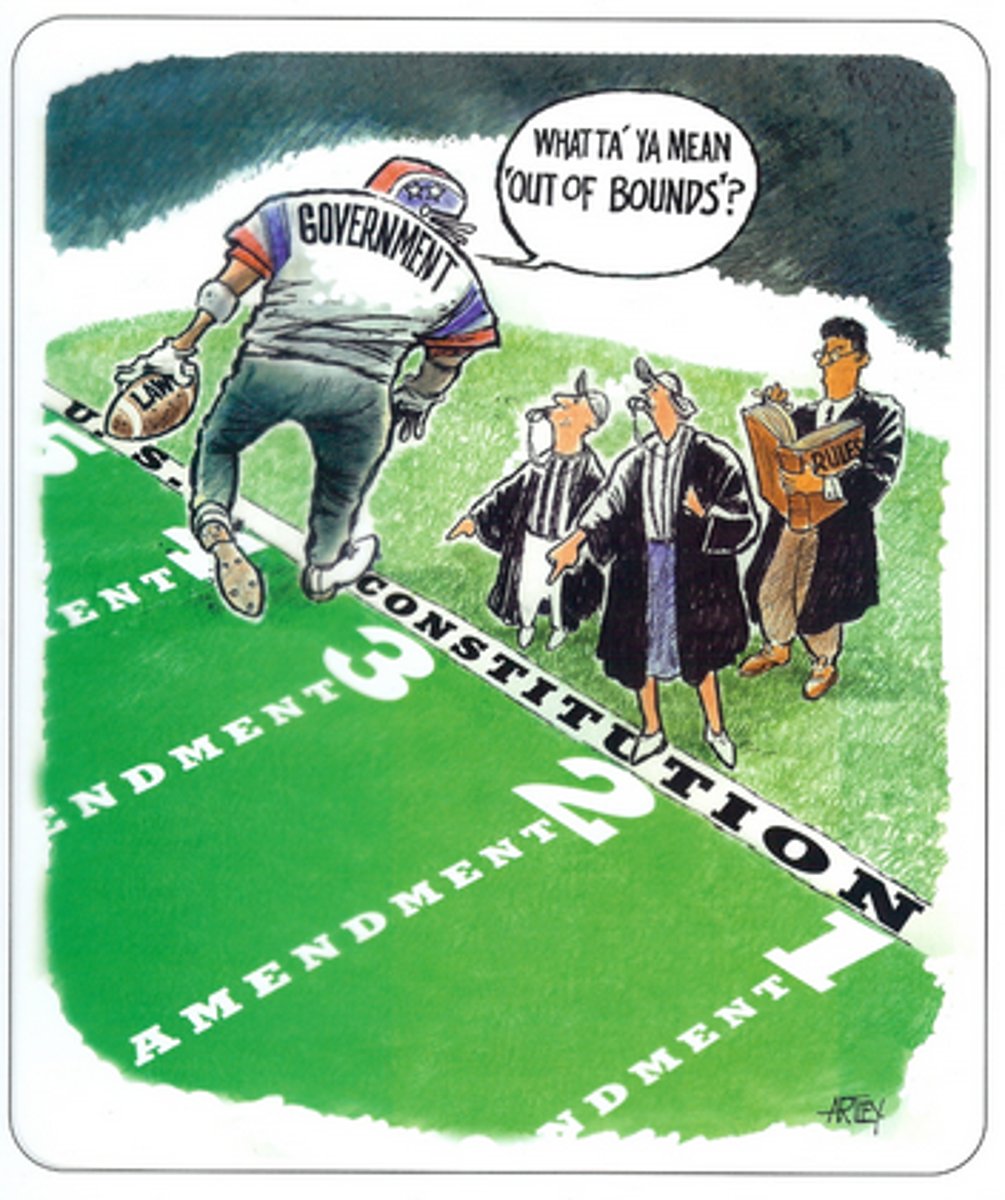
McCulloch v. Maryland
Implied powers under the Necessary and Proper Clause - Creation of the bank was implied based upon the enumerated power of Congress to tax. State of Maryland could not tax federal bank due to Supremacy Clause
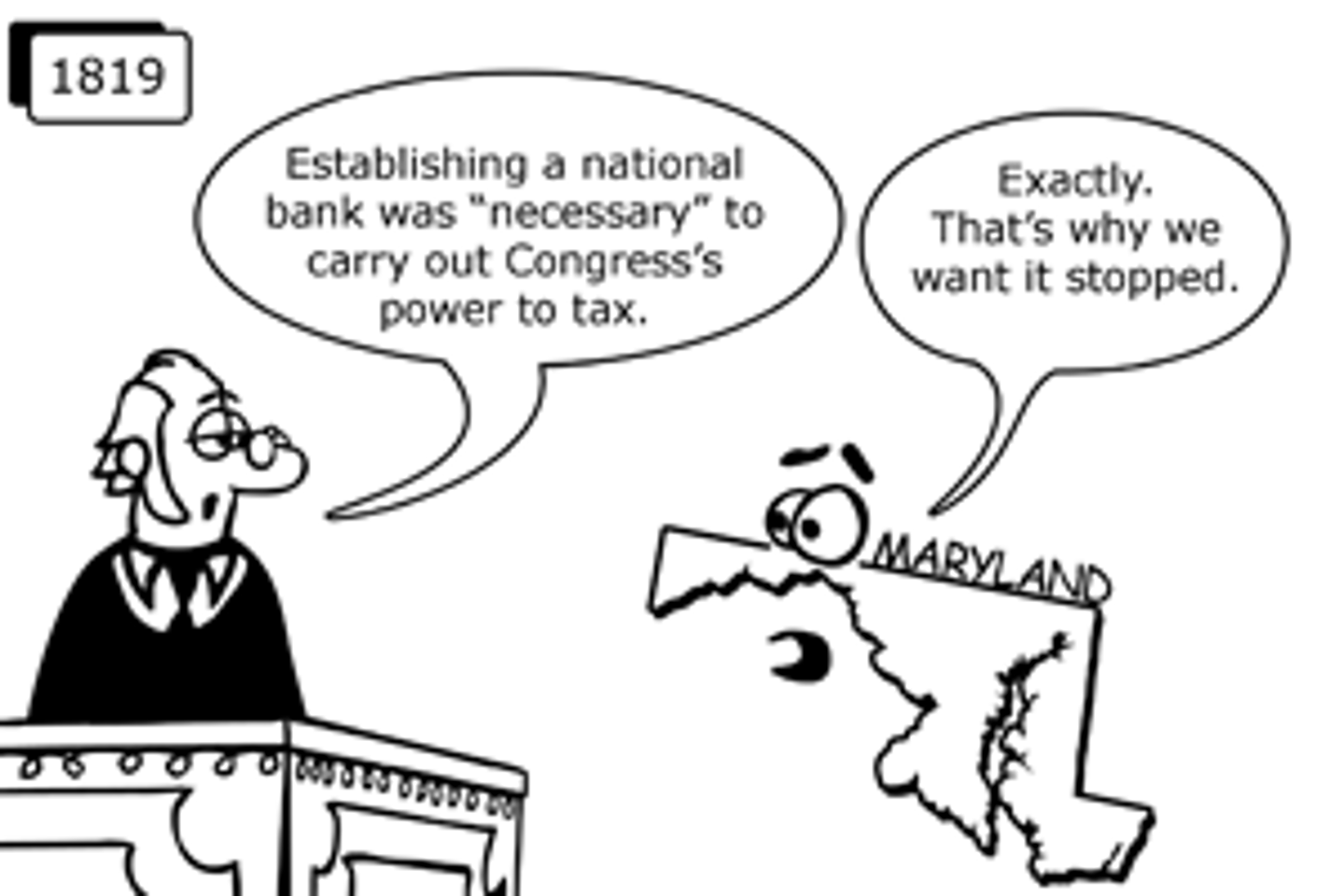
Gibbons v. Ogden
Supreme Court of the United States held that the power to regulate interstate commerce, granted to Congress by the Commerce Clause of the United States Constitution, encompassed the power to regulate navigation
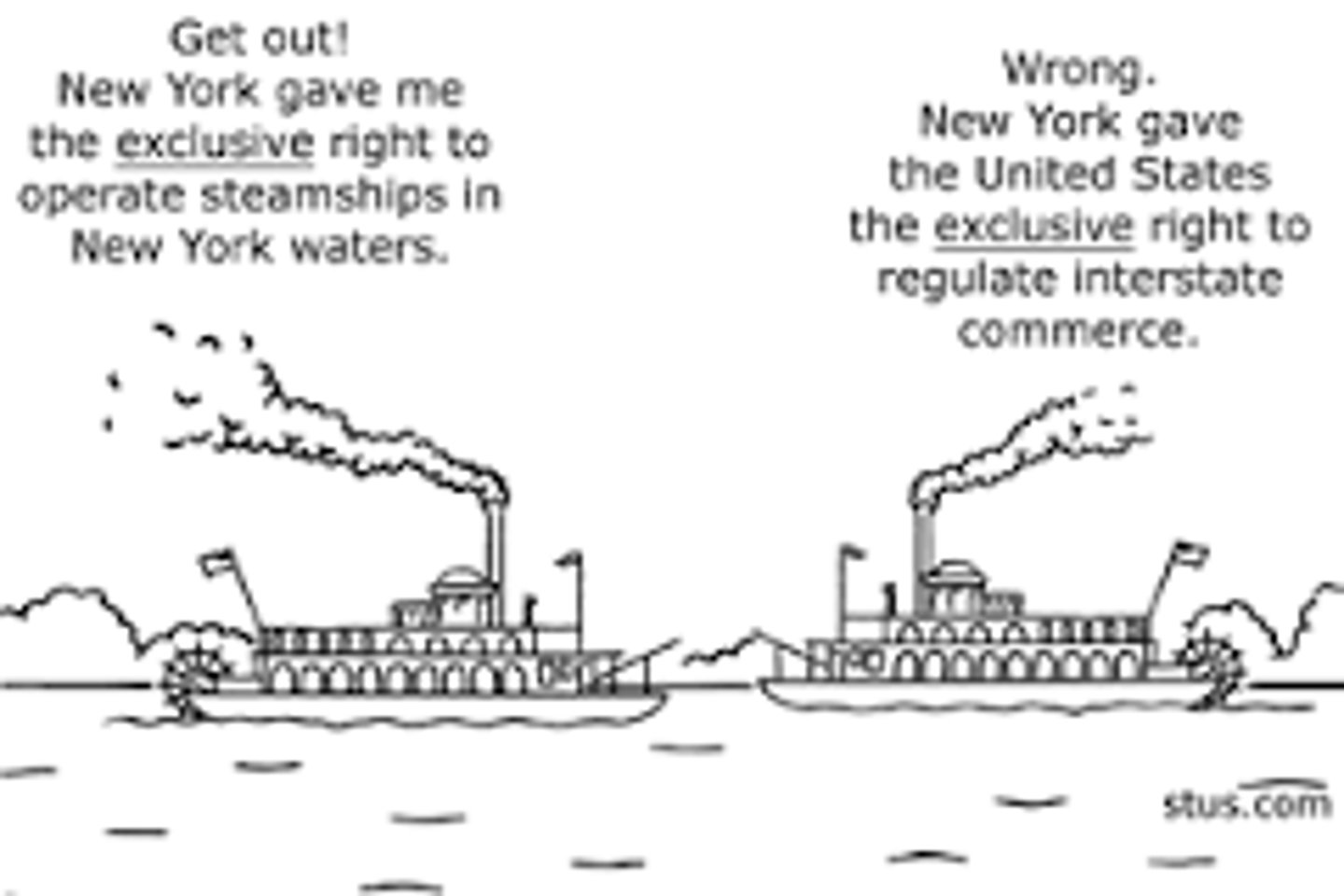
Shaw v. Reno
1993 case in NC with majority-minority districts, court ruled it was an example of racial gerrymandering and thus these districts were unconstitutional. The case was a problem of reverse discrimination. (Redistricting cannot be based on race!)
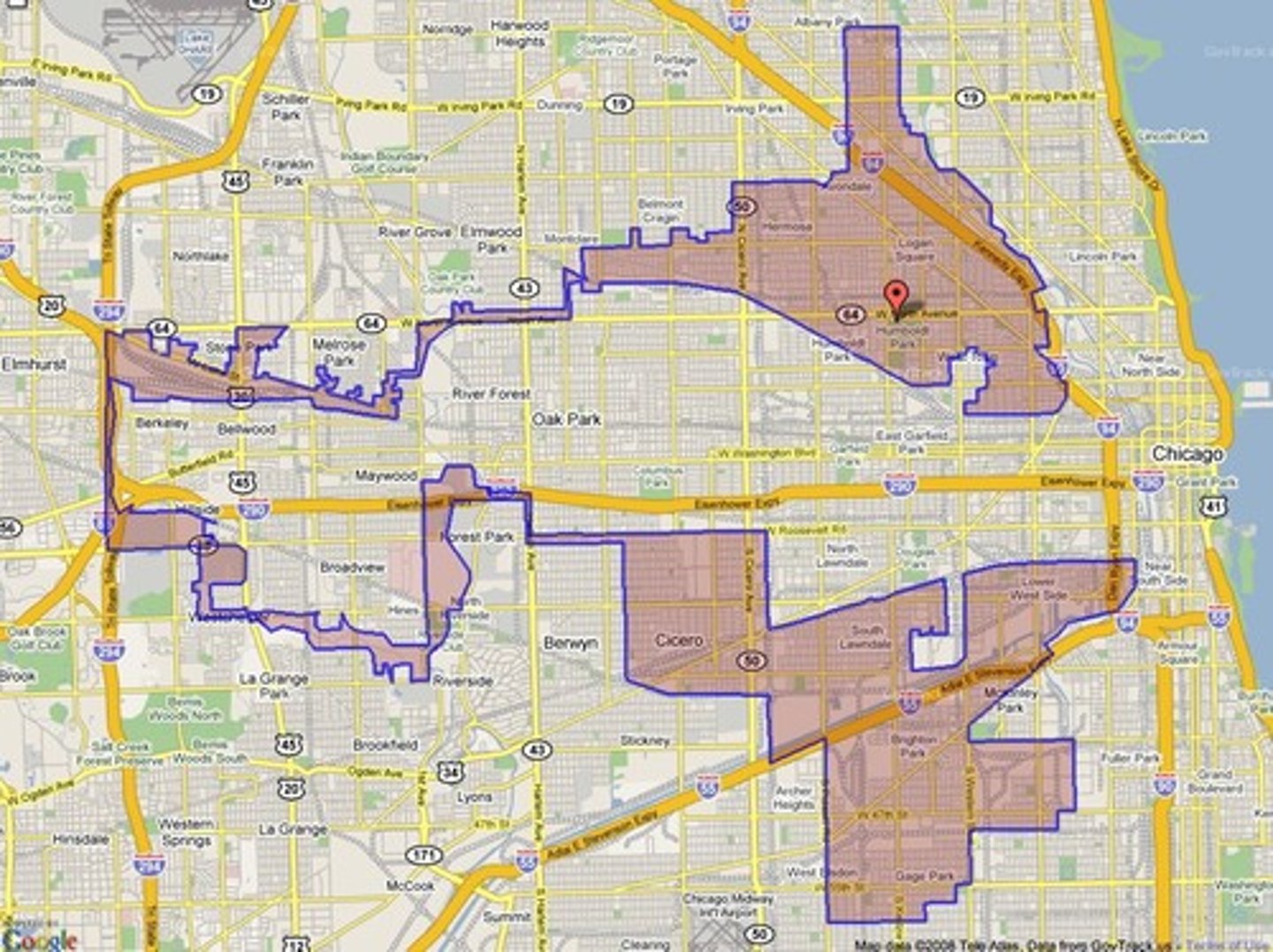
New York times v. Sullivan
1964 - public official may not win a libel suit unless they can prove the statement was made knowing to be false or with reckless disregard of its truth
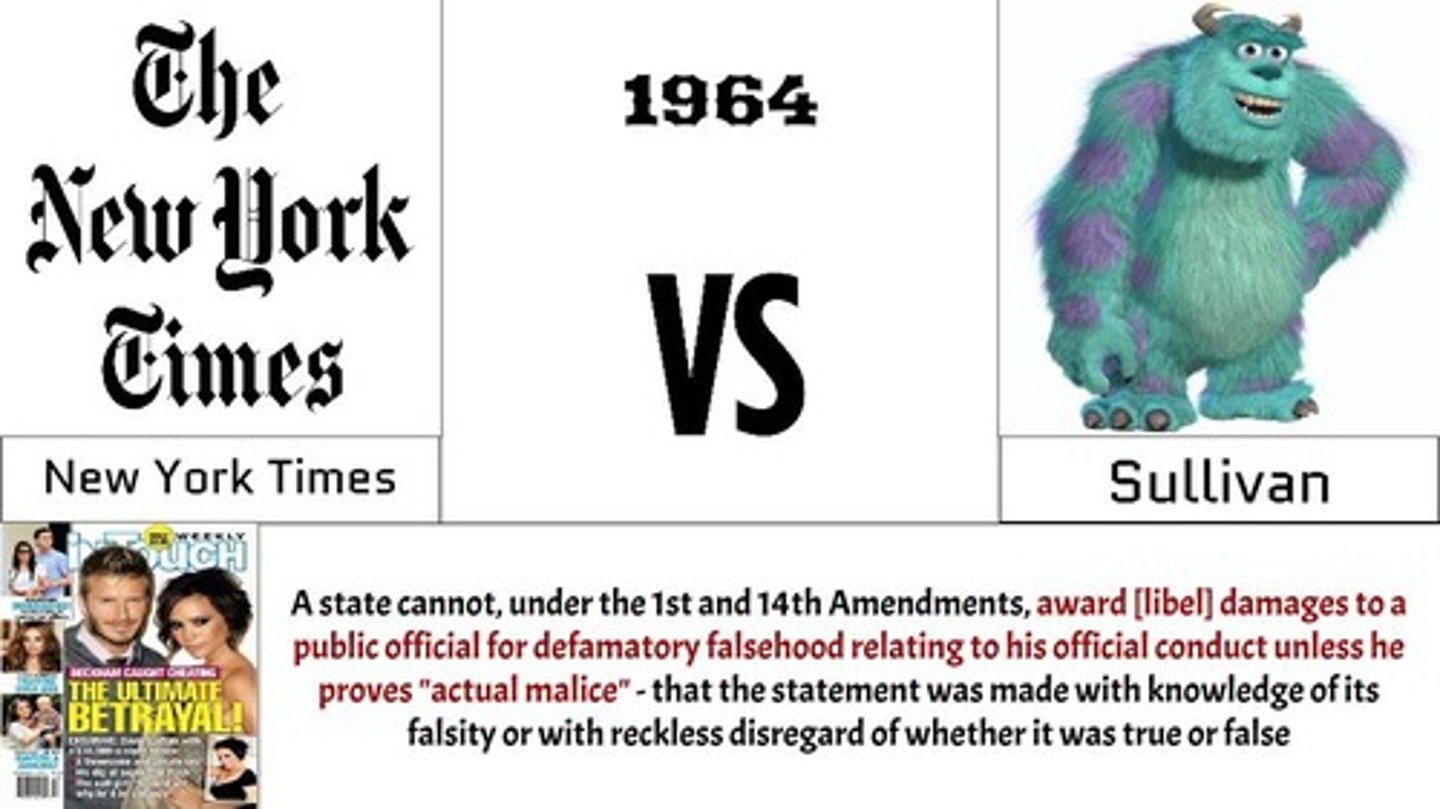
Texas v. Johnson
A 1989 case in which the Supreme Court struck down a law banning the burning of the American flag on the grounds that such action was symbolic speech protected by the First Amendment.
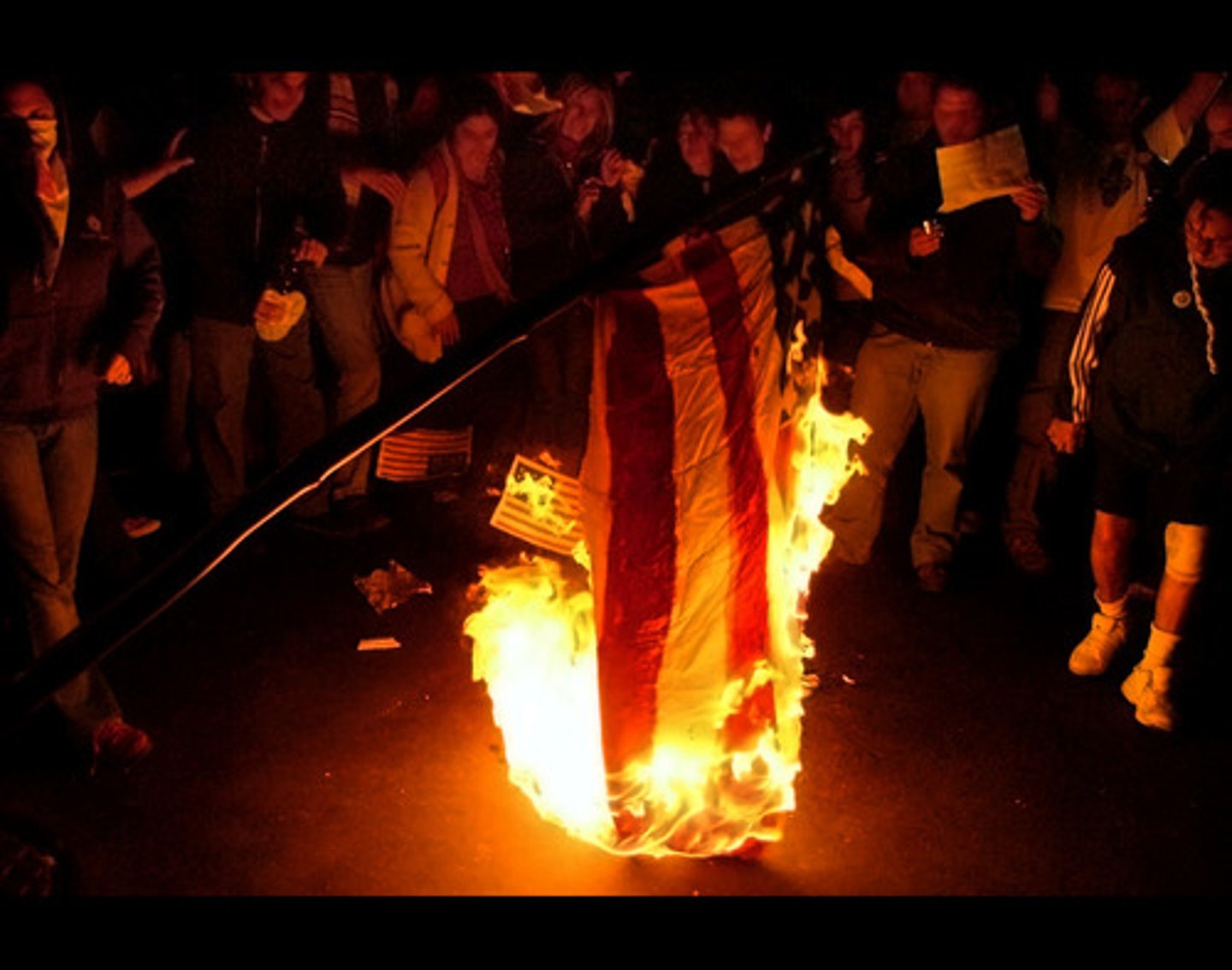
Barron v. Baltimore
Ruled that the Bill of Rights cannot be applied to the states. (Before selective incorporation and the 14th amendment)
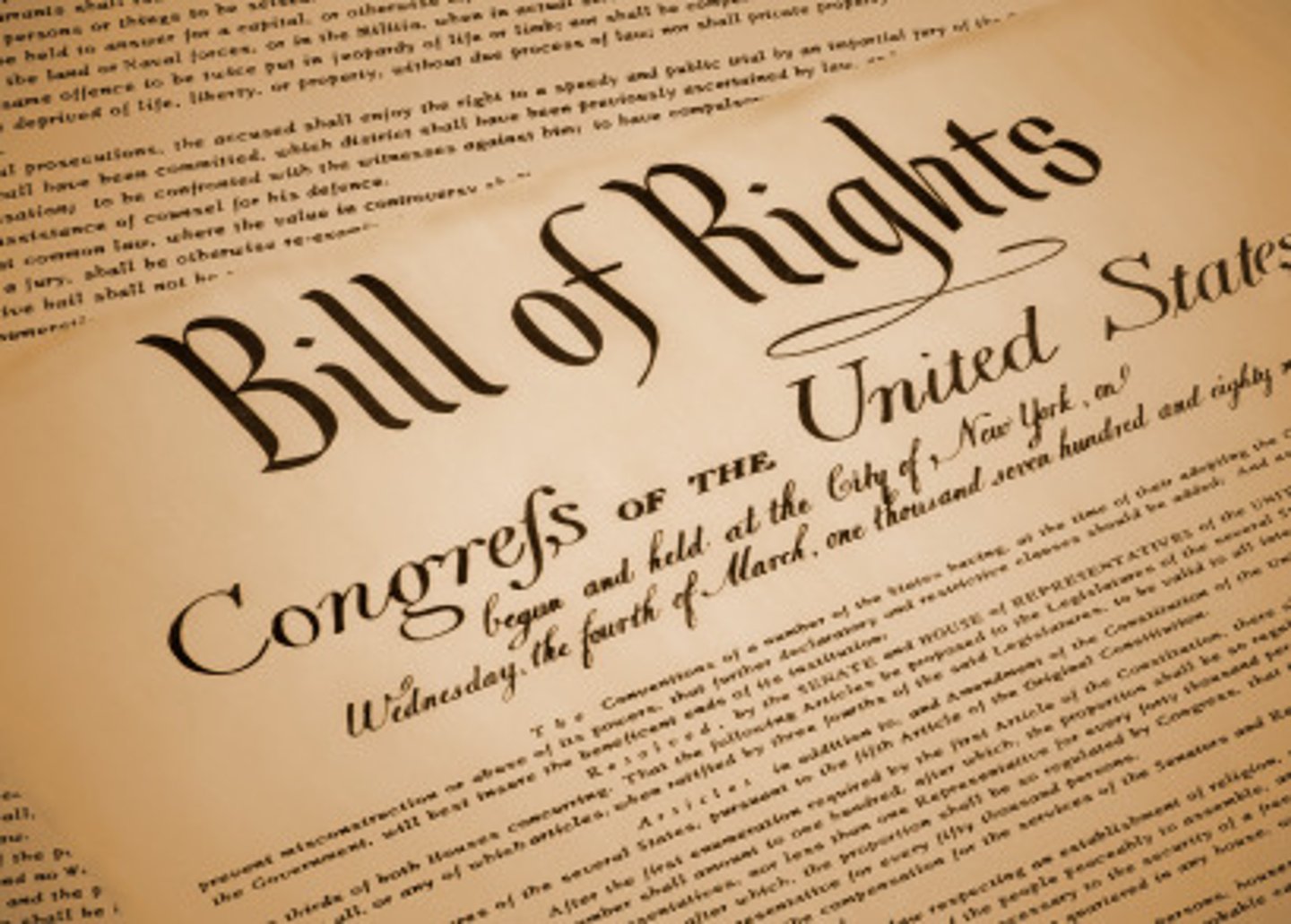
Gideon v. Wainwright
A landmark case in United States Supreme Court history. In the case, the Supreme Court unanimously ruled that state courts are required under the Sixth Amendment of the Constitution to provide counsel in criminal cases for defendants unable to afford their own attorneys.

Obergefell v. Hodges
Upholds same sex marriage via 14th amendment equal protection clause
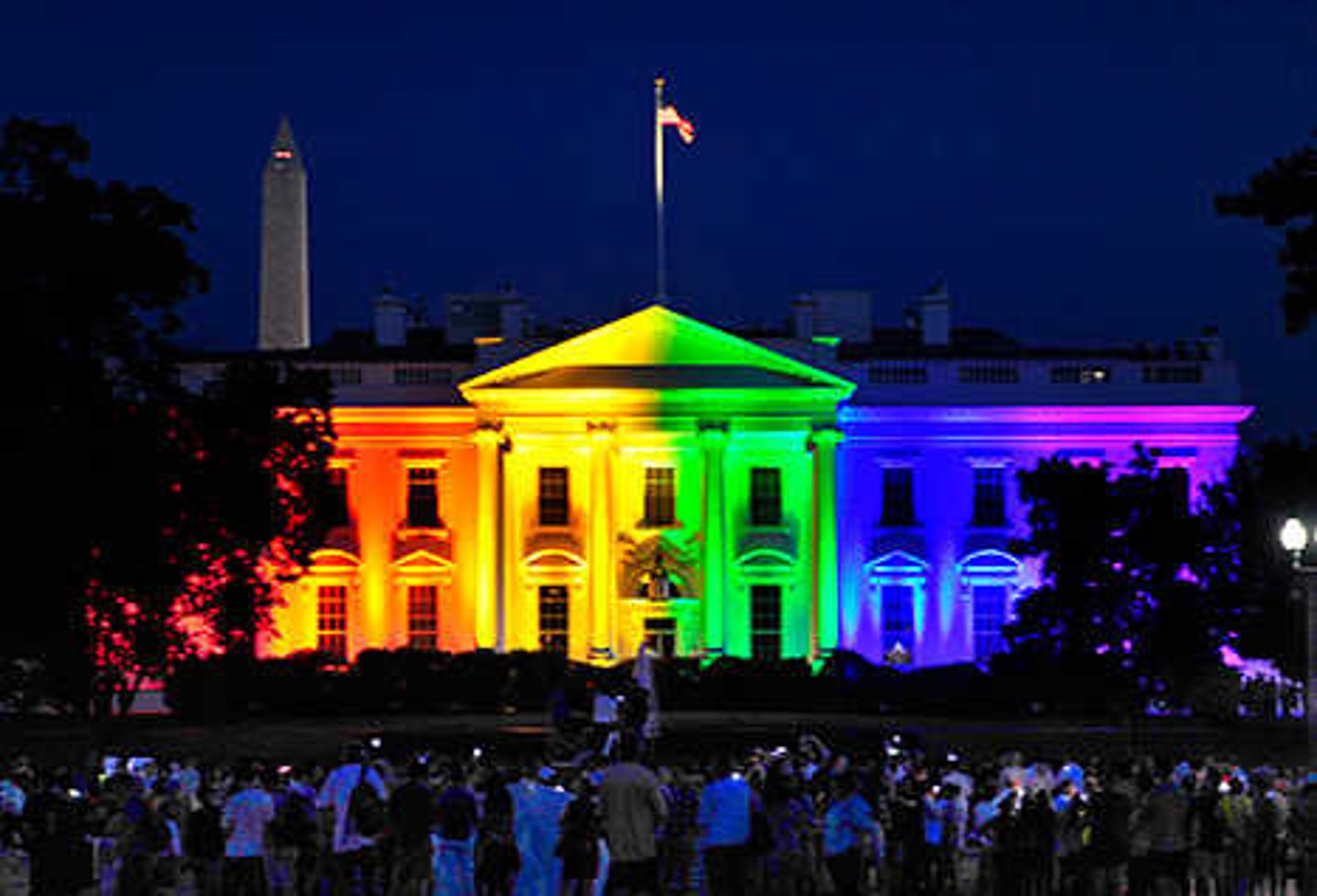
Wisconsin v. Yoder
Compelling Amish students to attend school past the 8th grade violates the free exercise clause of Amendment I
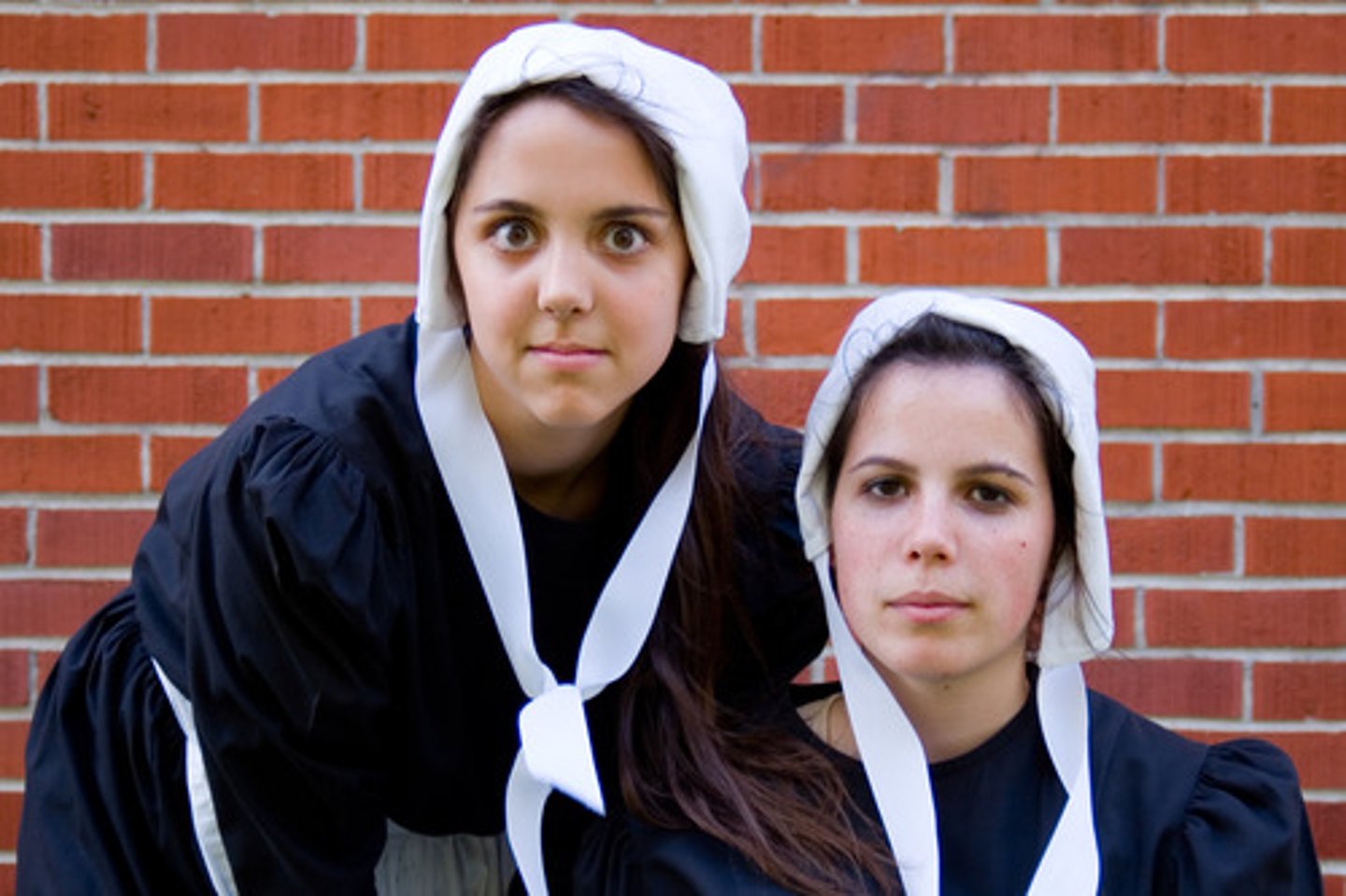
McDonald v. Chicago
Held that the 14th Amendment allows for the 2nd Amendment to be applied to the states and citizens have the right to bear arms.
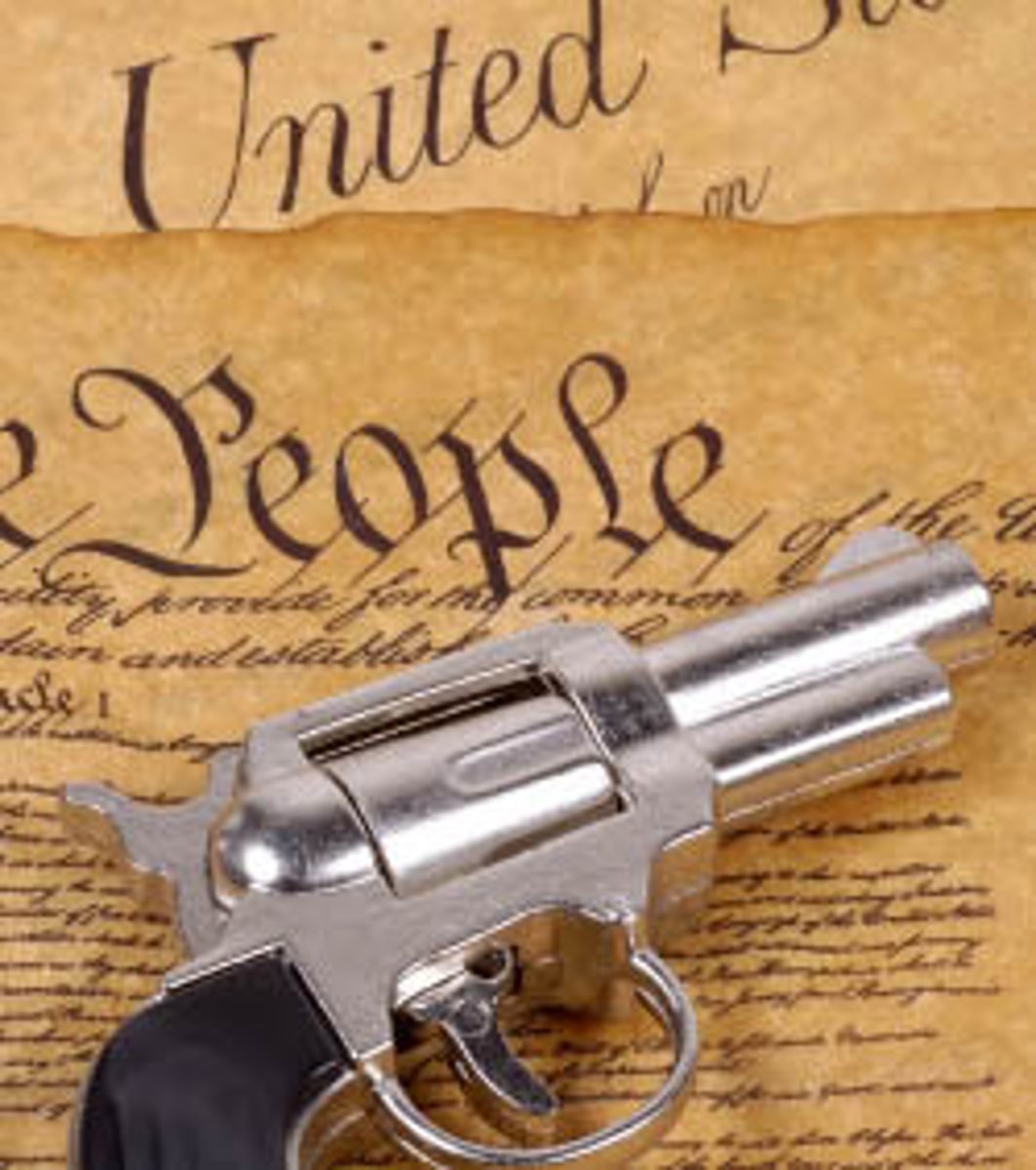
Citizens United v. FEC
Political spending by corporations and unions is a form of Constitutionally-protected free speech
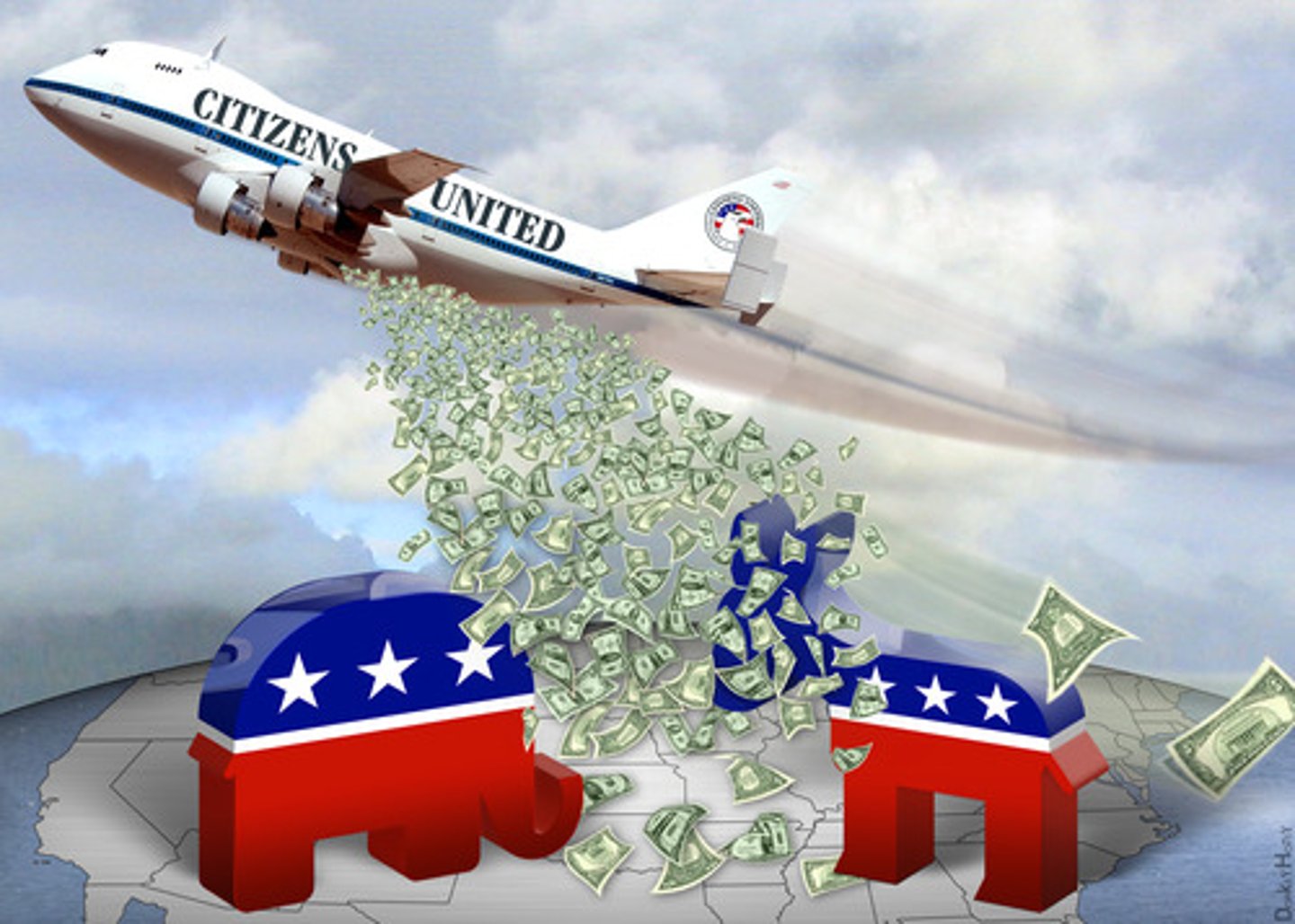
Near v. MN
the press is protected from prior restraint in accordance with the press clause of the First Amendment
Palko v. Connecticut
The Fifth Amendment right to protection against double jeopardy is not a fundamental right incorporated by the Fourteenth Amendment to the individual states.
Brown v. Board of Education 2nd
Ordered schools to desegregate "with all due and deliberate speed."
Abbington v. Schempp
Prohibited devotional Bible reading in public schools by virtue of establishment clause and due process clause. Warren Court's judicial activism
Wesberry v. Sanders
Ordered House districts to be as near equal in population as possible.
US v. Nixon
The Supreme Court does have the final voice in determining constitutional questions; no person, not even the President of the United States, is completely above law; and the president cannot use executive privilege as an excuse to withhold evidence that is 'demonstrably relevant in a criminal trial
Webster v. Reproductive Health Services
More leeway for states in regulating abortion, though no overturning of Roe v. Wade.
Employment Division of Oregon v. Smith
States could deny unemployment benefits to a person fired for violating a state prohibition on the use of peyote even though the use of the drug was part of a religious ritual.
Planned Parenthood v. Casey
A 1992 case in which the Supreme Court loosened its standard for evaluating restrictions on abortion from one of "strict scrutiny" of any restraints on a "fundamental right" to one of "undue burden" that permits considerably more regulation.
Clinton v. NY
Banned presidential use of line item veto
Bush v. Gore
Use of 14th Amendment's equal protection clause to stop the Florida recount in the election of 2000.
Zelman v. Simmons-Harris
Public money can be used to send disadvantaged children to religious schools in tuition voucher programs.
Ashcroft v. ACLU (2002)
Struck down a federal ban on "virtual" child pornography
Lawrence v. Texas
Using right of privacy, struck down Texas law banning sodomy.
Gratz v. Bollinger
Struck down use of "bonus points" for race in undergrad admissions at University of Michigan.
Grutter v. Bollinger
Allowed the use of race as a general factor in law school admissions at University of Michigan
Kelo v. New London
Eminent domain case: Local governments may force the sale of private property and make way for private economic development when officials decide it would benefit the public.
Gonzales v. Carhart
Upheld Partial Birth Abortion Ban Act of 2003.
DC v. Heller
Struck down a Washington DC ordinance that banned handguns